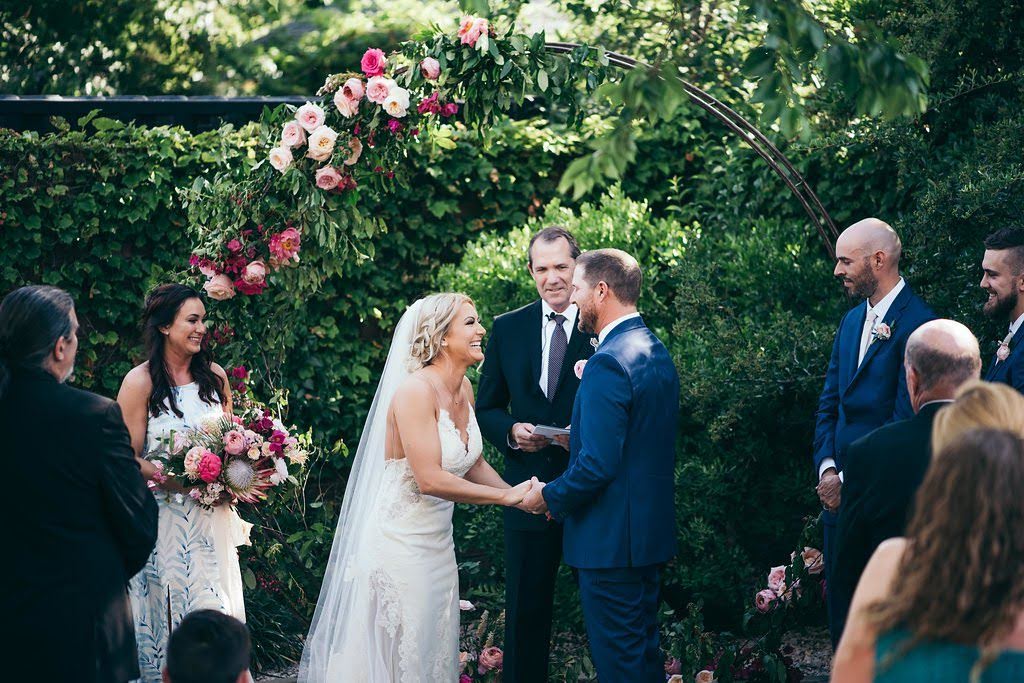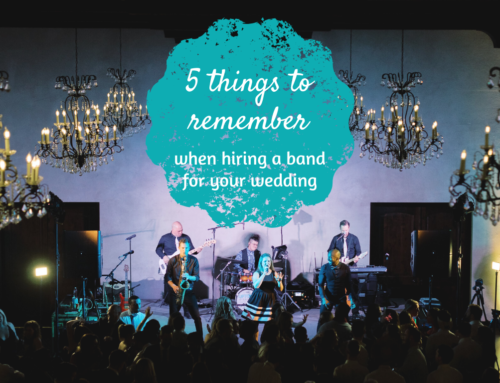Selecting an officiant to marry you can be one of the most personal decisions you make through the wedding planning process. If you’re considering choosing a family or friend instead of a professional, we definitely recommend taking a look at the following tips to make sure you have a smooth experience!
Ceremony Planning Meeting
This process should start 2 months before the wedding, to give you and your officiant plenty of time to discuss what you’d definitely like them to say (and in some cases, what you definitely do NOT want them to say! 😉 . Many times, officiants add a heartfelt and/or personal touch with stories into the ceremony, and it is highly likely this will need some time to write as well. In this meeting, you can discuss your vows and other important details. Commonly discussed topics are:
-
- Are you writing your own vows, or is your officiant writing / sourcing them for you? Do you want your own time on the microphone to say them to one another, or repeat them after your officiant?
- Will you be working in any religious aspects into your wedding or vows? Even if you feel it doesn’t need to be said because of your level of friendship with the officiant, use this meeting to be very clear about the level of religion and any specific activities that you expect to take place during the ceremony. Be prepared to explain any traditions or other aspects your officiant may not be fully aware of and what you expect in this regard.
- Approve the wording with your officiant about how you will exchange rings, and when this will occur in the ceremony. Exchanging rings can be a bit more complicated than one would expect. Especially in front of a captivated audience. You will definitely want to go over this during your rehearsal.
- Talk about who goes first for vows and for rings. Traditionally this is the groom followed by the bride, but we have plenty of couples that switch things up. Sometimes we suggest that the person who thinks they are the most emotional of the couple should go first, because the adrenaline of the moment will sometimes assist them in not crying.
- Are you having any other type of ceremony within your ceremony? Sand ceremony, unity candle, rose ceremony? All of these need to be placed into the ceremony with your officiant.
- Are there any other volunteers in your ceremony? Readers, singers, prop managers, etc. We will need to cue these wonderful people as well and clear indicators from your officiant can help to ensure things go smoothly!
Tips for success
There are certain aspects that are pretty important to a smooth ceremony, but in the grand scheme of things, can be easily overlooked during the finalizing process. Here are some tips for making sure everything goes smoothly as possible!
- Officiants need to prepare for how they will protect the ceremony and vows. We like to suggest they hold their ceremony document in a folder or large book, to keep the pages together neatly. Our favorite tip is to use a binder with clear sheet protectors, which allows for easy page-flipping and less risk of a page blowing away!
- DEFINITELY plan a rehearsal to practice the wording and to get some of the jitters out. It will help make the ring exchange more comfortable as well.
- We recommend adding the following into the script so they aren’t forgotten:
- Asking guests to please “be seated” after the opening words of the ceremony. If no one asks your guests to be seated, they will stand.. And stand.. And stand. Remember, they may already be standing because they were standing for the bride, but if this doesn’t apply to you then you have one less thing to worry about! 😉
- The Kiss (yes, this has actually been forgotten in a ceremony by a nervous family-friend officiant, but luckily we caught it during the rehearsal! — Did I mention that you should DEFINITELY rehearse?)
- The pronouncement (the very first introduction as husband and wife)
- We also recommend that the officiant take a step to the side during your first kiss so we get your lovely emotions and skip their facial expressions, but this one is hard to remember for those who are newly ordained!
If after reading this, you think this all sounds a bit more daunting than you expected, you may want to still consider hiring a professional. I will admit, it usually takes a load of anxiety out of an already stressful time for your friends and/or families to allow a pro to be responsible for all of the key details. However, some of the most touching ceremonies I have witnessed were done by the couple’s cherished loved ones. As long as you two and your officiant feel educated on the topic enough to have the confidence on your wedding day, you are winning the battle!





